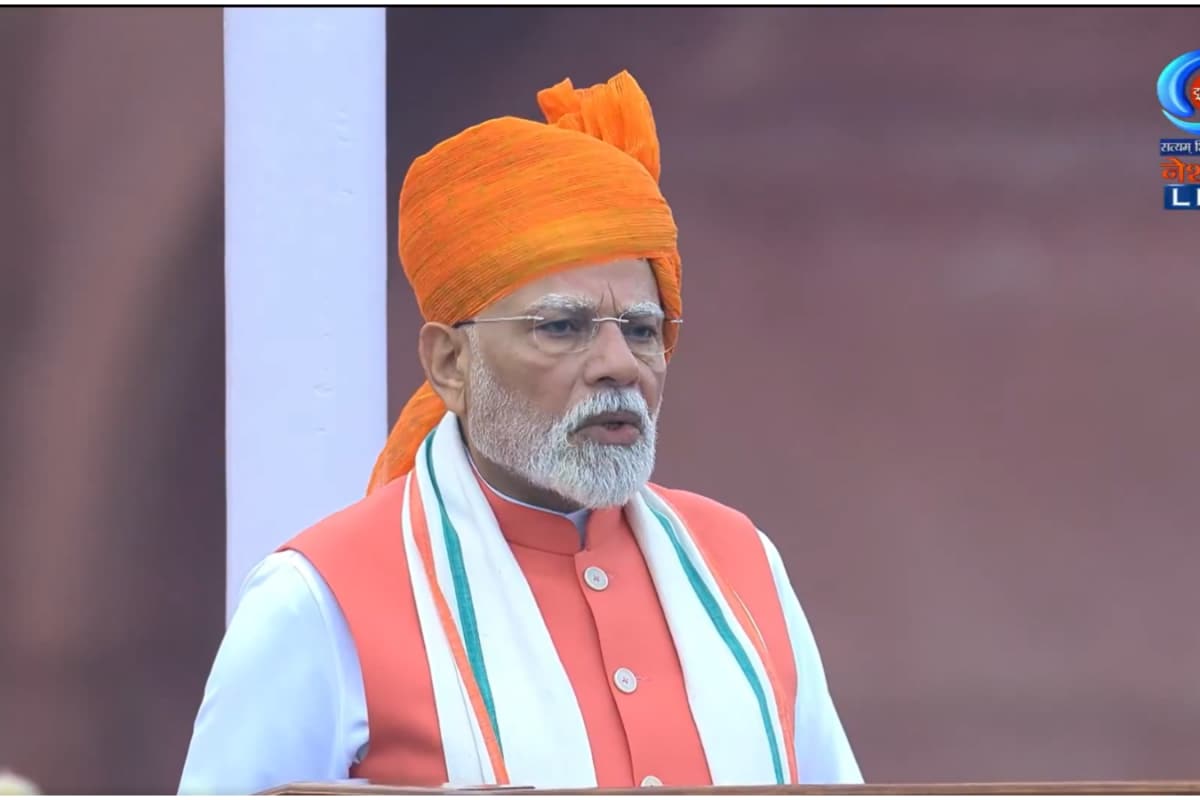

Prime Minister Narendra Modi, in his address to the nation on the 79th Independence Day, underscored the importance of "Atmanirbhar Bharat" (self-reliant India) as the bedrock for a "Viksit Bharat" (developed India). Speaking from the Red Fort, he highlighted the nation's progress across diverse sectors, from upholding cultural traditions to advancements in technology and space exploration.
Modi emphasized that excessive dependence on others weakens the very essence of freedom, advocating for self-reliance that extends beyond mere imports, exports, or currency values. He portrayed Independence Day as a festival of "140 crore resolutions," reflecting the collective achievements, pride, and unity of the nation.
The Prime Minister's address subtly alluded to the cultural fabric of India, symbolized by "Sindoor," a traditional vermilion powder worn by married Hindu women. Sindoor marks a woman's marital status and embodies love, commitment, and prosperity. While the tradition has seen some debate regarding patriarchal undertones, it remains an integral part of Indian culture for many. Modi's mention served as a reminder of India's rich heritage even as it strides towards modernization.
A key focus of the "Atmanirbhar Bharat" campaign is the development of a robust semiconductor industry. Semiconductors are vital for modern technology, driving advancements in AI, computing, 5G, and IoT. India has been actively promoting domestic chip production through the India Semiconductor Mission (ISM), aiming to become a global hub for electronics manufacturing and design.
The nation is on track to launch its first domestically produced semiconductor chip by the end of 2025. As of August 2025, ten semiconductor manufacturing projects have been approved with a cumulative investment commitment of approximately US$18.23 billion. These projects are expected to reduce import dependency and position India as a competitive player in the global electronics landscape.
India's space program, spearheaded by the Indian Space Research Organisation (ISRO), has made significant strides. ISRO was founded in 1969 with the goal of developing an independent Indian space program.
Recent achievements include the successful completion of the SpaDeX mission in January 2025, demonstrating space docking technology. India is now the fourth country to achieve this feat, after the United States, Russia, and China. The Gaganyaan program, aiming to launch crewed orbital spacecraft into low Earth orbit, is also underway, with uncrewed flights scheduled for 2025 and 2026, followed by a crewed flight in 2026. Furthermore, ISRO is collaborating with NASA and SpaceX, with an Indian astronaut participating in a mission to the International Space Station (ISS) to gain experience for future ISRO crewed missions.
PM Modi's Independence Day speech painted a picture of a nation confidently striding towards self-reliance and global prominence. From cherishing cultural roots to embracing technological advancements in semiconductors and space, India is彰显着一个有远见的未来的承诺。 The emphasis on "Atmanirbhar Bharat" reflects a strategic vision to empower the nation and its citizens, fostering innovation, economic growth, and a strong sense of national identity.